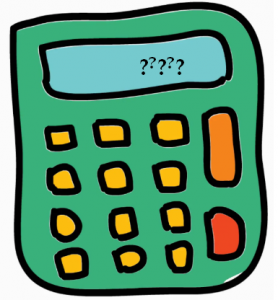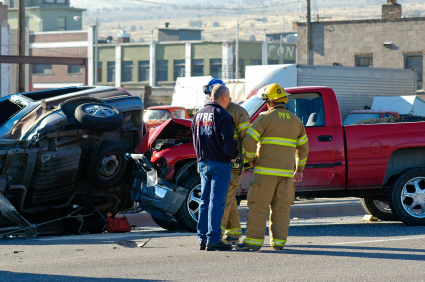I’VE NEGOTIATED MY CASE, AND RECEIVED AN OFFER—DO I NEED A LAWYER?
 Every now and then we get a call from someone who has been slugging it out with the insurance company on their own in an effort to save legal fees and handle it themselves. These calls often come at the time that negotiation is wrapping up because the callers want some advice about whether the settlement offer is a good one. We try to be helpful to people who call us, and we take the position that lawyers should be responsible members of the community, so we will usually try to give some helpful general advice. The truth that some lawyers won’t tell you is that yes, you can settle your own personal injury case. Here are some criteria to determine whether you forgo a lawyer and settle a case on your own.
Every now and then we get a call from someone who has been slugging it out with the insurance company on their own in an effort to save legal fees and handle it themselves. These calls often come at the time that negotiation is wrapping up because the callers want some advice about whether the settlement offer is a good one. We try to be helpful to people who call us, and we take the position that lawyers should be responsible members of the community, so we will usually try to give some helpful general advice. The truth that some lawyers won’t tell you is that yes, you can settle your own personal injury case. Here are some criteria to determine whether you forgo a lawyer and settle a case on your own.
The main question that people have when talking to a lawyer while simultaneously trying to settle their own case is this: “What happens if I hire you and we get more, but I personally get less?” This is not a question with a simple answer. Until we evaluate your case, we cannot always make you a guarantee. Every case is unique, and we will come up with an agreement that reflects the work you did on your case. Without all the information about your claim, we don’t know whether the insurance company is undervaluing it or valuing it correctly.
The client needs to provide the attorney with as much information as possible regarding their case. This includes all treatment facilities, lost wages, and factors that have changed in the clients life due to the accident.
 Maryland Car Accident Lawyer Blog
Maryland Car Accident Lawyer Blog


 An automobile accident can turn your life upside down. There’s so much to do–find reliable transportation, get to the doctor, deal with insurance companies, and survive missed work. The easiest way to know if you have a claim is to consult with a lawyer–don’t let the insurance company convince you that you have a claim (they are, after all, looking out for their own best interests).
An automobile accident can turn your life upside down. There’s so much to do–find reliable transportation, get to the doctor, deal with insurance companies, and survive missed work. The easiest way to know if you have a claim is to consult with a lawyer–don’t let the insurance company convince you that you have a claim (they are, after all, looking out for their own best interests).  We’ve discussed how the strength of your case (liability and negligence) affects your case value, and we’ve discussed how the economic damages, like medical bills and lost wages, impacts your case value. Now we’ll talk about non-economic damages.
We’ve discussed how the strength of your case (liability and negligence) affects your case value, and we’ve discussed how the economic damages, like medical bills and lost wages, impacts your case value. Now we’ll talk about non-economic damages.  One question common to all Maryland auto accident victims is “what is my case worth?” It’s a simple question with a complicated answer–so complicated, that we’re going to spend the next seven or so blog posts breaking it down for you.
One question common to all Maryland auto accident victims is “what is my case worth?” It’s a simple question with a complicated answer–so complicated, that we’re going to spend the next seven or so blog posts breaking it down for you.